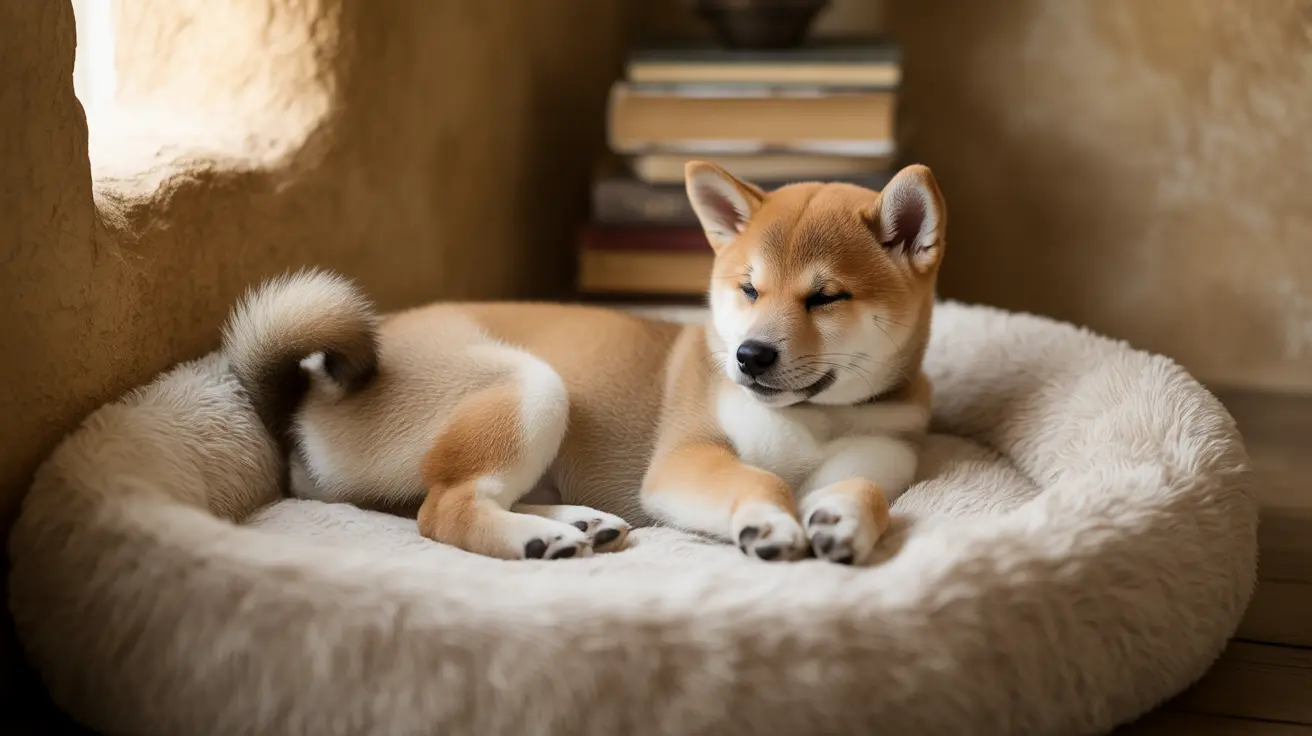Recibir a un cachorro en casa es una experiencia emocionante, pero gestionar su horario de sueño puede ser todo un reto para quienes son tutores primerizos. Entender el horario de sueño para cachorros es crucial para su desarrollo, comportamiento y bienestar general. Esta guía completa te ayudará a comprender las necesidades de sueño de tu cachorro y a establecer patrones de descanso saludables.
Al igual que los bebés humanos, los cachorros necesitan dormir mucho más que los perros adultos para poder crecer y desarrollarse correctamente. A continuación, vamos a explorar todo lo que debes saber sobre cómo crear rutina de sueño cachorro y mantenerla de forma efectiva.
Cómo crear un horario de sueño apropiado según la edad
Cada etapa del cachorro tiene requerimientos y patrones de sueño diferentes. ¿Cuántas horas duerme un cachorro según su edad? Te lo detallamos:
8-12 semanas
- Necesita entre 18 y 20 horas de sueño total (cuánto debe dormir un cachorro de 2 meses).
- Realiza 5 siestas al día, con duración de 30 minutos a 2 horas cada una (cuántas siestas toma un cachorro al día).
- Duerme entre 6 y 8 horas por la noche, con varias pausas para hacer sus necesidades (cachorro se despierta por la noche).
12-16 semanas
- Entre 16 y 18 horas de sueño total.
- Hace 4 siestas diarias.
- Empieza a dormir más tiempo seguido durante la noche (cómo evitar que el cachorro se despierte).
Más de 16 semanas
- De 14 a 16 horas de sueño diario, acercándose a los horarios de un adulto (horarios ideales para dormir cachorro).
- 2-3 siestas al día.
- Mayor capacidad para dormir toda la noche.
Cómo establecer una rutina de sueño constante
El sueño saludable en perros jóvenes empieza por incorporar hábitos diarios predecibles, lo que ayuda a que el cachorro desarrolle patrones de sueño regulares. Para lograrlo, sigue estos consejos para que el cachorro duerma mejor:
- Establece horarios de comida constantes.
- Realiza paseos y pausas regulares para sus necesidades.
- Incluye sesiones de ejercicio y juego cada día.
- Mantén siempre el mismo horario para ir a dormir.
- Crea un espacio exclusivo para que duerma (dónde debe dormir un cachorro).
La clave está en la constancia y en por qué es importante rutina de sueño cachorro: un cachorro que sabe qué esperar se siente más seguro y descansa mejor.
La ciencia del sueño en cachorros
Los patrones de sueño en cachorros (patrones de sueño en cachorros) son similares a los de los humanos, pero en ciclos de menor duración: cada ciclo dura unos 45 minutos e incluye fases de sueño profundo (No REM) y sueño REM (fases del sueño de un cachorro). Durante el sueño REM, es normal observar que el cachorro se mueva, mueva las patas al dormir, emita sonidos o tenga pequeños espasmos (cachorro sueña mientras duerme). Todos estos movimientos indican un desarrollo cerebral saludable y actividad onírica.
Cómo crear el mejor ambiente para dormir cachorro
El mejor ambiente para dormir cachorro debe ser:
- Tranquilo y con poca luz.
- Con temperatura agradable y regulada.
- Cómodo, con una cama adecuada.
- Libre de interrupciones y ruidos.
- Siempre en el mismo lugar para reforzar la rutina (cómo acostumbrar a un cachorro a dormir solo).
Esto favorece que el cachorro asocie ese espacio con el descanso y ayuda a cómo hacer dormir a un cachorro cada noche.
Preguntas Frecuentes
¿Cuántas horas debe dormir un cachorro diariamente?
Un cachorro necesita dormir entre 18 y 20 horas al día para un desarrollo óptimo.
¿Por qué es tan importante el sueño en los cachorros?
El sueño favorece el crecimiento físico, el desarrollo cerebral y el aprendizaje en los cachorros.
¿Es normal que un cachorro se despierte por la noche?
Sí, es común porque necesitan hacer sus necesidades y aún no regulan bien sus ciclos de sueño.
¿Cuántas siestas debe tomar un cachorro durante el día?
Un cachorro suele tomar entre 4 y 6 siestas diarias de entre 30 minutos y 2 horas cada una.
¿Qué hacer si mi cachorro no quiere dormir solo?
Acostúmbralo paso a paso a dormir en su espacio, con rutinas y objetos que le den seguridad.
¿Cómo puedo mejorar la rutina de sueño de mi cachorro?
Establece horarios fijos de comida, paseos, juegos y descanso, y asegúrate de que duerma en un lugar tranquilo.
¿Por qué mi cachorro mueve las patas o hace ruidos mientras duerme?
Durante el sueño REM es normal que los cachorros tengan espasmos, sueñen o se muevan.
¿Cómo debe ser el ambiente donde duerme un cachorro?
Debe ser tranquilo, con poca luz, temperatura agradable y sin interrupciones.
¿Cuándo empezará mi cachorro a dormir toda la noche?
A partir de los 3-4 meses, muchos cachorros logran dormir varias horas seguidas por la noche.






